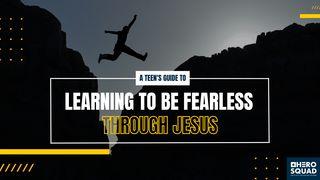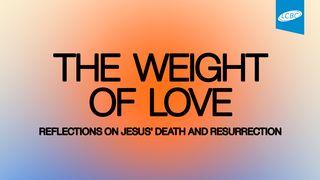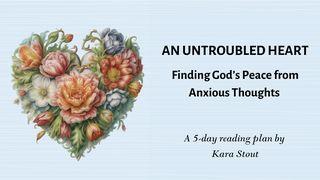Faith – in Other WordsSample

The great story of faith in the Old Testament is the story of Abraham. It is this story that Paul appeals to in the New Testament on numerous occasions, because Abraham exemplifies faith.
We take his faith as an example of how faith works, and so we should. We believe that Abraham’s journey parallels our own, which it does. We take the promises God made to him as an individual a clue as to how God can speak the same way to us, and so we should.
But a good deal of his faith had little to do with this present age. The writer of Hebrews tells us that the reason he was able to journey to a land he’d not known, and that he was to receive as an inheritance for his descendants (not himself) was because he saw ‘by faith’ beyond the confines of this world – further than the promises of heirs and lands. “Abraham did this because he was confidently looking forward to the city with eternal foundations, a city designed and built by God.” Abraham was able to proceed into the unknown, because he saw beyond to where his desires for a home and a sense of permanency found their true resting place – the city of God. The land of Canaan wasn’t his destination, ultimately; it was on the way through, a stopover.
If you only read the Old Testament account of Abraham, you’d rightly conclude it was about receiving a child due to a promise and the land due to the same promise. But in turning to the New Testament another issue comes to the fore, something quite different.
No doubt a child wonderfully delighted Abraham and Sarah but this, vitally important as it was, can’t have been the final answer to what had begun in them. Why? A person can’t hear from the eternal breath/spirit an articulation, a word, a promise, that doesn’t infect (in the nicest possible way) them forever. An eternal being’s word doesn’t ever leave us with an option but to be satisfied with nothing less than a forever life with that being. – that’s what it does to us. That’s the cost.
When heaven breathes into a man’s soul, he is ruined as far as this life is concerned. Another sort of life, and a hunger for it, is implanted in us, a hunger nothing else is ever going to satisfy completely, try as we may. This longing is sweet one day, painful the next. It would almost have been better not to have heard the voice of God. It is as though a crack in our lives has become a chasm.
And it was because Abraham was looking ‘beyond’, that it was safe for God to make promises to him, because inherent in the reception of that promise, was the antidote to the promise ever assuming a larger place in his life than the giver of it. As much as he may have wanted to settle down with this age/world as his home, he found a restless life in him that told him what he was looking for doesn’t yet exist on this planet – glorious though she may be.
When God’s word becomes part of our life, it separates us from the clutches of a world of diminishing returns, a world where gloss doesn’t lead to glamour, a world where the best possessions just don’t do it for us. We’re looking for something that doesn’t exist here. The ‘forever’ word has invaded our temporal tendencies and overthrown their short-sightedness.
But a person shouldn’t attempt to deny this world or the promises that God’s word makes to us, as we aren’t yet in a new heavens and earth. Nor should we attempt to immerse ourselves so completely in this world that we become entirely earthbound creatures, our vision glazed over with temporal matters, with things that pass away. It isn’t either-or, it is both that fulfils our humanity and spirituality – if we must make a difference between them. Abraham is the best example because between the two Testaments, we see a complete picture of his faith, a faith that knew both worlds/kingdoms without making the man a split personality.
Faith is about this world, but never just about this world. We are pilgrims with that faraway look in our eyes, because we are looking far beyond this pale existence to this present age where our deepest, truest desires are waiting to be realized. That is why I conclude faith is distracting, it’s otherworldly – in other words.
Scripture
About this Plan

The writer of Hebrews 11 states from the get-go, that faith is an assurance, a conviction, in and of something not seen, but hoped for. Hope in this instance is rock solid, based upon the character, and articulations of God; his person and his word, in other words.
More
We would like to thank Simon McIntyre for providing this plan. For more information, please visit: https://www.simonmcintyre.net/
Related Plans

What Your Prayer Accomplishes

A Teen's Guide To: Learning to Be Fearless Through Jesus

Desperate Woman Seeks Friends by Kristen Strong

Your Name Is Daughter

Stick Together

Scripture-Based Prayers for Spiritual Warfare

The Weight of Love: Reflections on Jesus' Death and Resurrection

God’s Strengthening Word: Being Renewed by the Holy Spirit

Awakening the Mighty Wind: Embracing Life, Renewal, and the Spirit’s Global Breath
